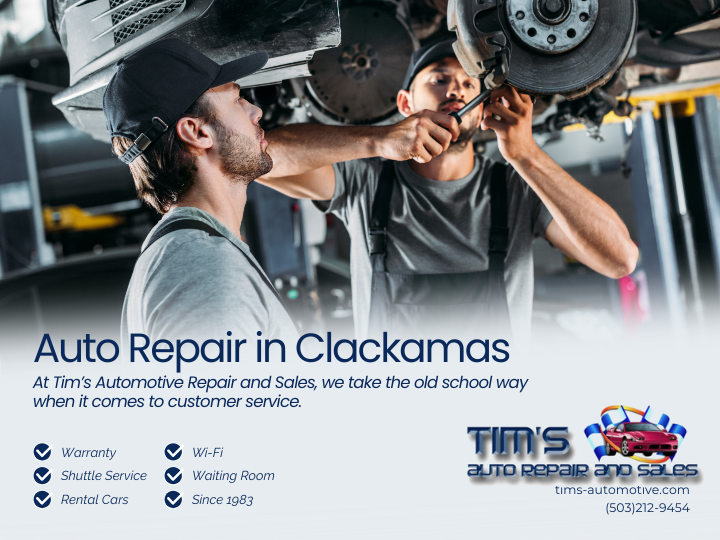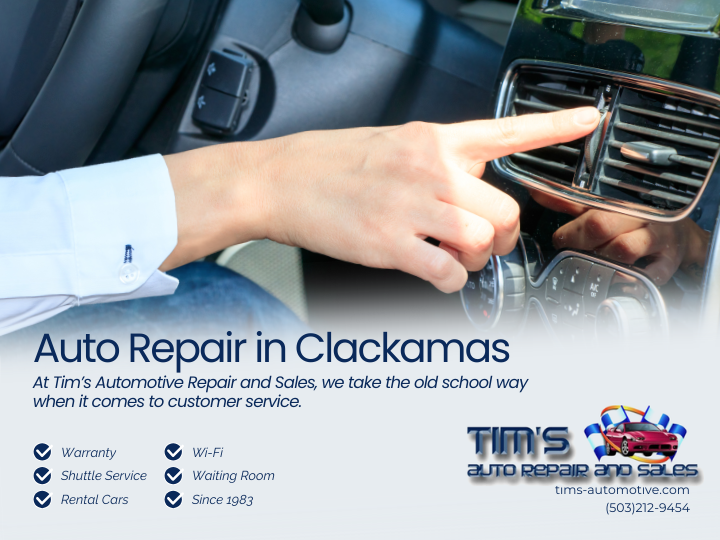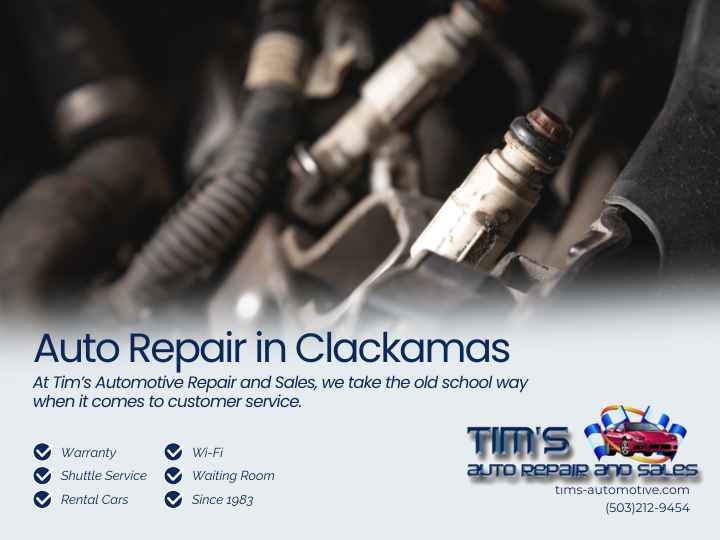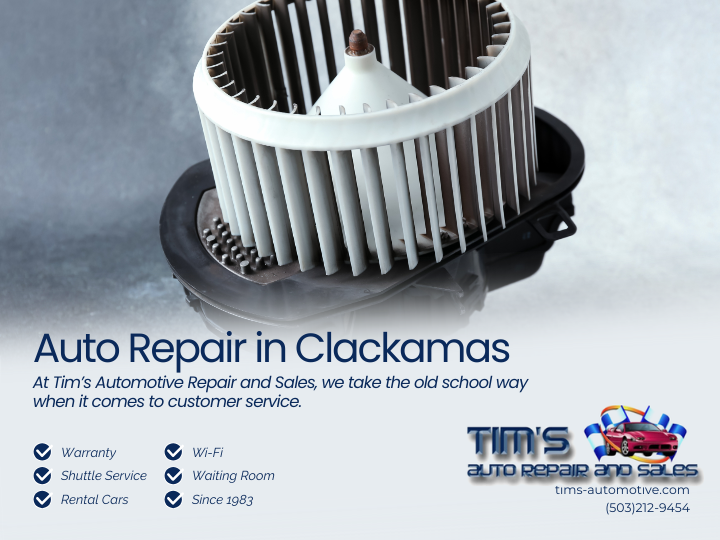Posted on 4/14/2025

Auto Repair That Respects You – Welcome to Tim’s Automotive in Clackamas, OR Let’s face it—getting your car serviced shouldn’t feel stressful or uncomfortable. And yet, too many women have had experiences in auto repair shops that left them feeling unheard, rushed, or second-guessed. At Tim’s Automotive Repair and Sales, we’re changing that. For over 30 years, we’ve proudly served the Clackamas community with one simple goal: treat every customer like family—with respect, transparency, and total honesty. That’s why so many women across Clackamas, Happy Valley, and surrounding areas trust us to handle their vehicles. We don’t just fix cars—we give you the confidence to understand them, maintain them, and make informed decisions about them. What Makes Tim’s Automotive Female-Friendly? We know what many women have experienced at other shops. You’ve told us about being talked down to, b ... read more
Posted on 4/7/2025

Automotive Service Near Me: What Clackamas Drivers Need to Know—and Why Tim’s Automotive Is Built for the Long Haul If you’re searching for “automotive service near me” in Clackamas, OR, odds are something doesn’t feel right. Maybe you’re overdue for an oil change. Maybe your brakes are making noise. Or maybe—like many drivers today—you’re wondering who you can actually trust with your vehicle. Here’s the truth: Most shops just treat symptoms. At Tim’s Automotive Repair and Sales, we build systems. Systems that prevent breakdowns, protect your investment, and help you drive with total peace of mind—without the surprises, the pressure, or the sales gimmicks. Why Most Drivers Pay More Over Time—Without Realizing It The average vehicle doesn’t fail all at once. It breaks down slowly—through delayed maintenance, skipped inspections, and following the wrong advice. By th ... read more
Posted on 3/31/2025

The Clackamas Cool: Mastering the Heat with Tim's Automotive Repair and Sales' A/C Expertise In the scenic town of Clackamas, OR, where the summer heat can turn your car into a sweltering oven, a functioning A/C system isn't a luxury; it's an absolute necessity for comfort and safety. When your vehicle's climate control system falters, you're not just losing comfort; you're facing a potential safety hazard. That's where Tim's Automotive Repair and Sales, located at 15688 SE 135th Ave, steps in – not as mere mechanics, but as artisans of arctic air, transforming your car into a cool and refreshing oasis. The Science of Cool: Understanding Your Car's A/C System Before we dive into the repair process, let's understand the intricate system that keeps you cool. Your car's A/C is a sophisticated network of components working in perfect harmony: The Compressor: The heart of the system, compressing the refrigerant and circulating it thr ... read more
Posted on 3/24/2025

Tim's Automotive Repair and Sales: Precision Engine Service - Mastering GDI and PFI Technologies At Tim's Automotive Repair and Sales, located at 15688 SE 135th Ave, Clackamas, OR, we understand that your vehicle's engine is the core of its performance and reliability. Whether your vehicle is equipped with a Port Fuel Injection (PFI) system, known for its robust dependability, or a Gasoline Direct Injection (GDI) system, celebrated for its advanced efficiency, our team has the comprehensive knowledge, extensive experience, and advanced diagnostic tools to provide exceptional service. We also offer a wide selection of quality used vehicles for sale, providing a complete automotive solution. PFI: Ensuring Robust Dependability and Optimizing Efficiency for Long-Term Performance "PFI systems have a long history of reliability in the automotive world," explains Tim's Automotive Repair and Sales' lead PFI technician. "Our focus is on ensuring these syste ... read more
Posted on 3/17/2025

Keeping Cozy in Clackamas: Your Comprehensive Guide to Car Heater Repair with Tim's Automotive Repair and Sales The Pacific Northwest winters can bring a significant chill, making a functioning car heater essential for comfortable and safe driving. A malfunctioning car heater can make your commute miserable and even pose a safety risk. If you're experiencing a lack of heat or inconsistent warmth in your vehicle, it's time to seek professional car heater repair. This detailed guide will walk you through the process, focusing on Tim's Automotive Repair and Sales, a trusted repair shop located in Clackamas, OR. Discovering Tim's Automotive Repair and Sales: Your Local Heating System Experts Located at 15688 SE 135th Ave in Clackamas, OR, Tim's Automotive Repair and Sales has been serving the community with reliable and high-quality automotive services for over 30 years. They understand that your vehicle is vital to your daily life, and they are committed to prov ... read more